PhD candidates
| Name | Anett Kuntosch |
| Institution | Humboldt-Universität zu Berlin, Dep. of Agricultural Economics |
| Supervisor(s) | Prof. Dr. Wolfgang Bokelmann, Dr. Michael Brüntrup |
| Partner (internal or external) | Friedrich Wilhelms University of Bonn, Germany Biologische Bundesanstalt Kleinmachnow, Germany |
| Photo | 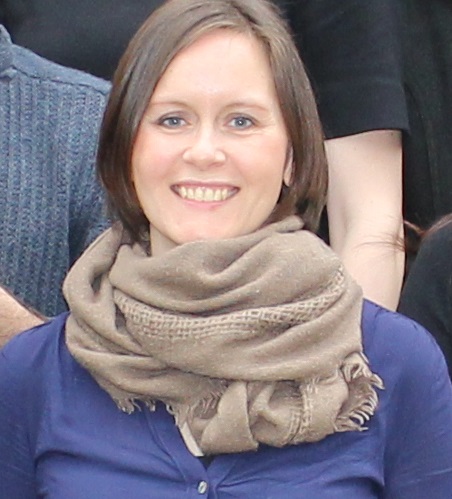 |
| Description of PhD-Topic | Applied Method: His PhD aims at a regional impact assessment of pesticides risk at the level of Germany. For this the three models RAUMSI, ISPS and NEPTUN have been applied. Three results of risk potentials, GIS surface water body data and production data has been linked to a risk indicator on pesticide leaching. Expected result: A regional assessment of risk potentials for pesticide leaching as a policy information tool that support decision making at regional level. Different scenarios will help to define the decision room depending on the policy instrument buffer zone programme. Final recommendations on different alternatives of analysed environmental programmes will be made. |
| Contact |
anett.kuntosch@agrar.hu-berlin.de or +49 30 209 346421 |
| Name | Harry Hoffmann |
| Institution | Leibniz Centre for Agricultural Landscape Research ZALF e.V. Müncheberg Germany |
| Supervisor(s) | Prof. Müller (ZALF) |
| Partner (internal or external) | Sokoine University of Agriculture (SUA), International Food Policy Research Institute (IFPRI) |
| Photo | |
| Description of PhD-Topic | Applied Method: My PhD thesis is focussing on rural bioenergy provision in Tanzania. We collected data in a village survey in Laela/Rukwa region in Western Tanzania. The focus is on (1) rural biofuel production potential for decentralised electrification, (2) the potential impact of improved woodfuel stoves and (3) the potential impact of improved charcoal kilns. Expected result: The energy challenge is crucial for food security and the forest resources for the supply of woodfuels (esp. charcoal and firewood) are declining rapidly in the case study village and beyond. Efficient cook stoves and efficient charcoal kilns can lower the pressure. |
| Contact |
harry.hoffmann@zalf.de |
| Name | Hadijah A. Mbwana |
| Institution | Sokoine University of Agriculture |
| Supervisor(s) | Prof J. Kinabo & Prof H. K. Biesalski |
| Partner (internal or external) | University of Hohenheim |
| Photo | 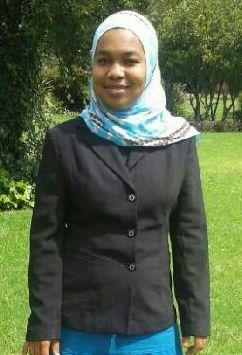 |
| Description of PhD-Topic | Applied Method: My PHD aims at assessing the impact of household centered nutrition education merged with home gardening on food consumption patterns, nutrient intake and nutritional status of children and their caregivers in rural Tanzania. A controlled before and after intervention study will be employed. Baseline data in both the intervention and the control villages will be collected then the nutrition education and kitchen gardening practical demonstration and training will be employed once every months for three months then impact assessment will be done eighteen months later. Expected result: Facilitation of discussions leading to planning and implementing effective nutrition interventions in Tanzania. Improve food consumption patterns, nutrient intake and nutritional status of household members in rural areas. |
| Contact |
hadija27@yahoo.com or 255713803410 |
| Name | Tatu Said Mnimbo |
| Institution | Sokoine University of Agriculture |
| Supervisor(s) | Joyce Lyimo Macha, Urassa Justin |
| Partner (internal or external) | DITSL |
| Photo | 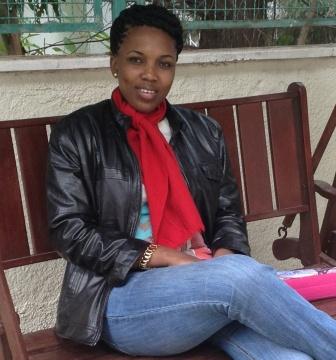 |
| Description of PhD-Topic | Applied Method: My PhD focuses on gendered analysis of upgrading strategies for crop value chains in sub-humid and semi-arid Tanzania. The specific objectives are: (1) To examine the influence of gender roles on the choices of crops and value chain upgrading strategies, (2) To analyse the gendered access and control of value creating technologies in crop value chains, (3) To determine pathways of addressing gender based constrains for equitable and sustainable participation in profitable crop value chains. Expected result: To ensure gendered upgraded strategies are considered in different value chain components in the Trans-SEC project and other development programmes. |
| Contact |
maureen3mnimbo@gmail.com/+255764381371 |
| Name | Yusto Mugisha Yustas |
| Institution | Sokoine University of Agriculture |
| Supervisor(s) | Prospective Supervisors are Prof. V. C. K. Silayo & Prof. S. Tumbo |
| Partner (internal or external) | Currently not clearly identified. Prospective institution is University of Hohenheim |
| Photo |  |
| Description of PhD-Topic | Applied Method: The PhD's goal is to formulate an optimising model for the renewable energy hybrid system involving anaerobic digestion of animal wastes (nutrient cycling), wind and solar energy harnessing for smallholder farmers and households in Chamwino-Dodoma. All major components of the system will be assessed by use of available research writings, models (like MATLAB, HOMER, CFD etc.) and other appropriate assessment tools as well as conducting relevant experiments. The results will be used for building an optimising model for the above mentioned system. Expected result: The optimising model for renewable energy hybrid system as policy and technical tool for enhancing informed decision making at all levels of operation and management of renewable energy subsector and environment at large. Wide-spread adoption of system/technology to the energy and soil-nutrients needy smallholder farmers in pro-poor and some poorly grid-connected areas , may be boosted through application of the model. |
| Contact |
omukama.mugisha@gmail.com or +255 784 742850 |
| Other | Since a PhD student is at early stage of working on the Research proposal some changes of the study methods and tools as well as supervisors are evisaged. |
| Name | Laurent N. Kaburire |
| Institution | Agricultural Research Institute (ARI) Hombolo |
| Supervisor(s) | Prof. Mattee, A.Z. (SUA), Dr. Nombo, C. I. (SUA) |
| Partner (internal or external) | ZALF |
| Photo | 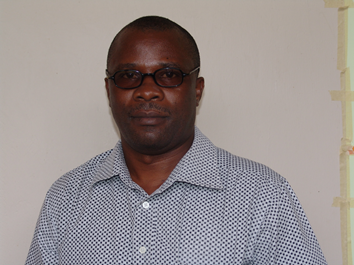 |
| Description of PhD-Topic | My PhD focuses on assessing the "Role of Multistakeholder Platforms in the Promotion of
Agricultural Innovations for the Food Value Chain in Tanzania". The study aims to assess
how multistakeholders' engagement processes used to bring together various actors
enhance to performence of MSPs to achieve the intended outcomes at both MSP and FVC
levels. Specificully, the study aimes to:
|
| Contact | kaburirelaurent@yahoo.co.uk, Mobile: +255 754 542650 or +255 784 858731 |
| Name | Paul S. Saidia |
| Institution | Agriculture Research Institute (ARI) Ilonga |
| Supervisor(s) | Prof. Rweyemamu, C.L (SUA), Prof. Semoka, JMR (SUA), Dr. Kimaro, A. (ICRAF) |
| Partner (internal or external) | UHOH |
| Photo | 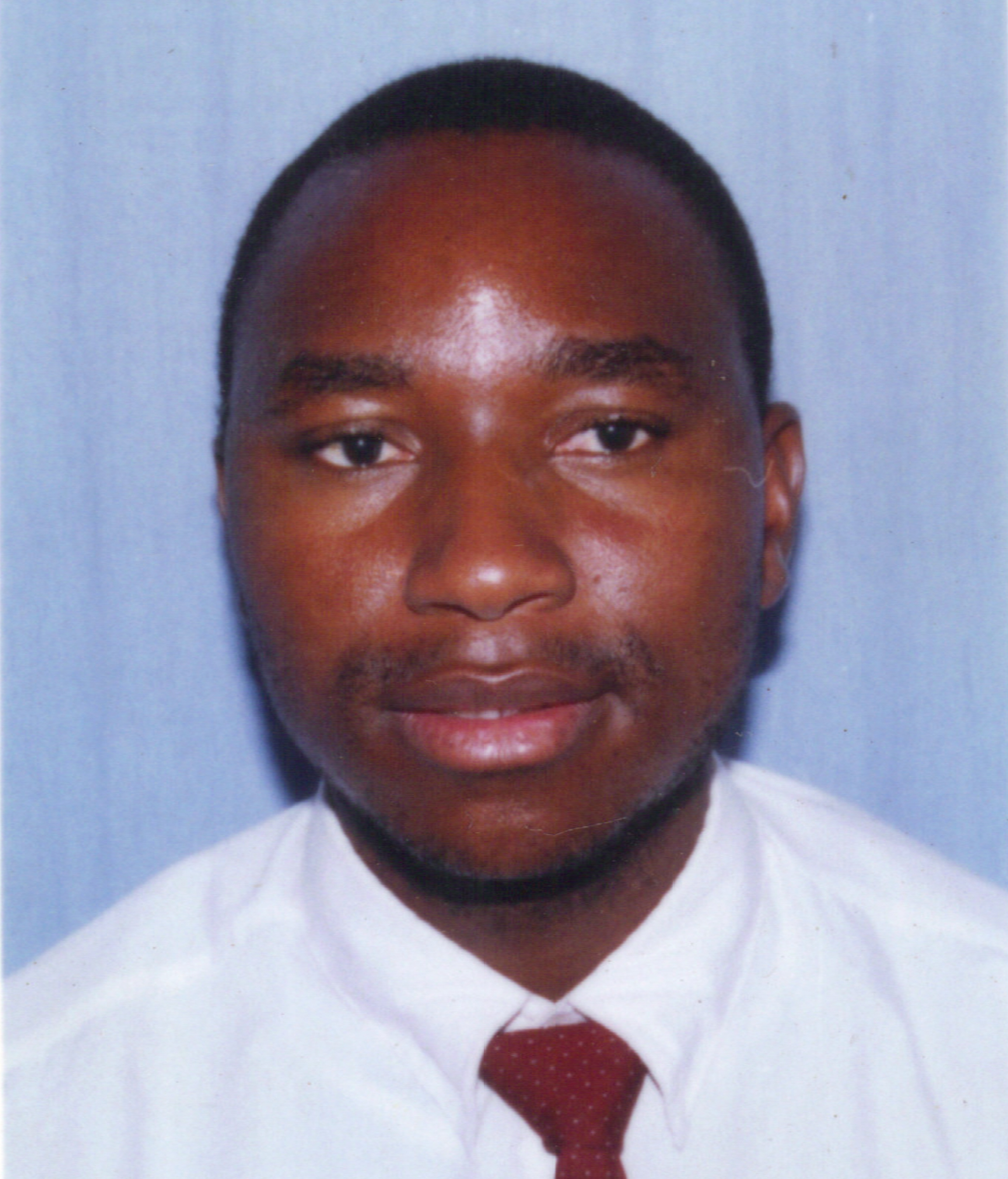 |
| Description of PhD-Topic | Applied Method: My PhD is focusing on "effects of nitrogen and phosphorus microdosing on maize-pigeonpea intercrops grown under different soil moisture management practices". Aim of the study is to improve crop productivity through intergrated soil fertility and moisture conservation to smallholder farmers. Expected result: Drought and declining soil fertility are becoming very challenging to small scale farmers, fertilizers are very expensive at recommended rates, hence:
|
| Contact |
Email: paulsaidia@yahoo.com, saidiapaul@gmail.com Phone: +255 762881855, +255 783299684 |
| Name | Lutengano Mwinuka |
| Institution | Sokoine University of Agriculture (SUA), Morogoro, Tanzania |
| Supervisor(s) | Dr. Khamaldin D. Mutabazi and Dr. Jeremia Makindara |
| Partner (internal or external) | University of Hohenheim (UHOH), Agricultural Research Institutes (ARI) |
| Photo | 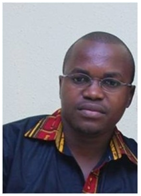 |
| Description of PhD-Topic | Applied Method: Mwinuka will examine productivity and welfare effects of fertilizer micro-dosing (MD) for upgrading the Maize and Millet value chains in Morogoro and Dodoma, Tanzania. His study assumes that, feasible value chain upgrading strategies such as fertilizer MD are vital for creating a quick-win situation for farmers and other agents in the commodity market. A total of three hypotheses will be tested related to productivity, economic surplus and adoption rate for both sub-humid and semi-arid conditions. Expected result: apart from other things and through an economic evaluation, his study will systematically prove or refute the claim that fertilizer micro-dosing may or may not be a profitable practice given labour intensity of localized application. Due to food systems diversity, success stories of the technology from case study sites would easily be disseminated to other regions within the country. |
| Contact | mwinuka.lutengano@gmail.com or +255 784891291 |
| Other | Lutengano Mwinuka is financed by the Trans-SEC Project, has been involved in the development of upgrading strategies inventory and database, working close with other economists for implementing marketing related upgrading strategies particularly poultry-crop integration for enhancing food and income and will participate in the exchange program of Trans-SEC. |
| Name | Emmanuel Amos Chilagane |
| Institution | ARI Hombolo-Tanzania |
| Supervisor(s) | Tentative Prof C.L Rweyemamu |
| Partner (internal or external) | UHOH |
| Photo | 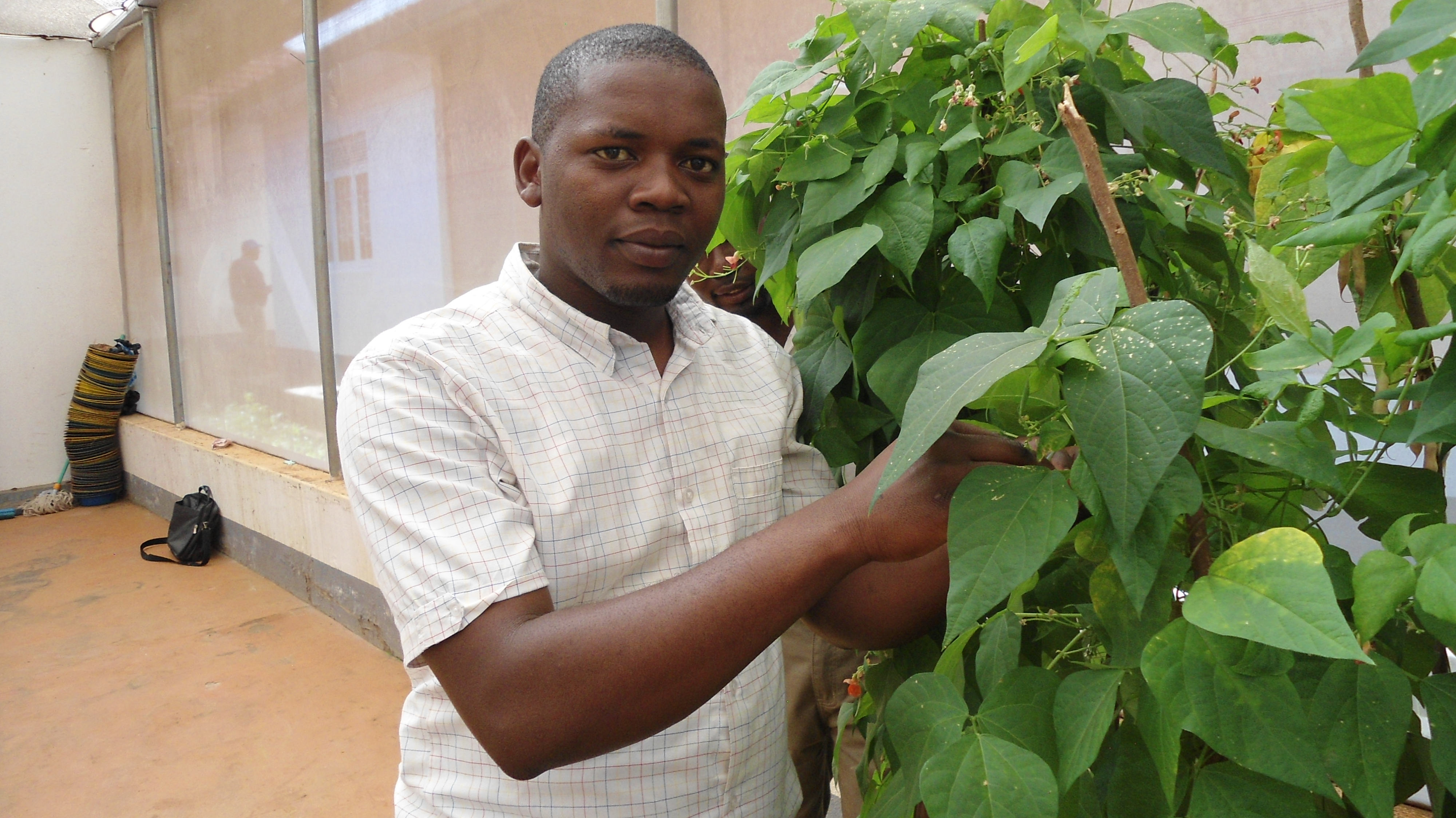 |
| Description of PhD-Topic | Applied Method: My PhD studies aim at determination of proper pearl millet -groundnuts cropping pattern with emphasis on nitrogen and phosphorus fertilizer dosage and water management practices in Dodoma. Three levels of cropping parttens (pearl millet -groundnut intercropping, sole pearl mille croppind and sole groundnuts cropping) will be tested under three levels of moisture management practices (infiltration pits, tied ridges and flat/famers practices) with three fertilizer dosage (recommended rate, microdose and zero rate fertilizer/ farmer practices). The ensence of this study is to improve crop productivity through intrergrated soil fertility management and proper moisture conservation options for small scale farmers in Dodoma. Expected result:
|
| Contact | Mail address: chilaganeemmanuel@yahoo.com mobile contact: +255 783 444 009 |
| Name | Jana Schindler |
| Institution | ZALF, Humboldt Universität zu Berlin |
| Supervisor(s) | Prof. Dr. Müller, Dr. Frieder Graef, Dr. Hannes König |
| Partner (internal or external) | SUA |
| Photo | 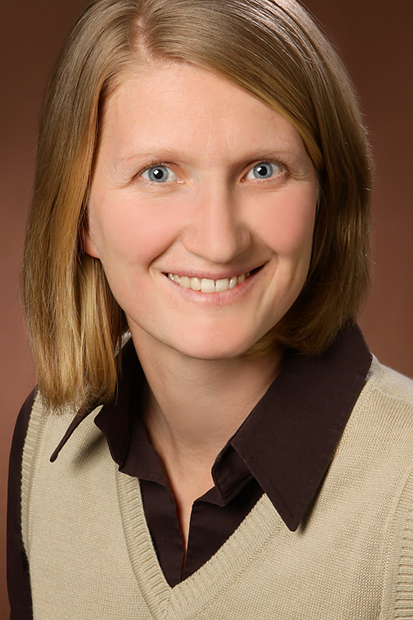 |
| Description of PhD-Topic | This dissertation aims at the analysis of the potentials of ex- ante Impact Assessment
in order to develop Upgrading Strategies that are suitable and sustainable within the
local context, having beneficial impacts on the local food security situation of
smallholder farmers in Dodoma and Morogoro Region, Tanzania. Procedural steps:
|
| Contact | jana.schindler@zalf.de |
| Name | Christoph Gornott |
| Institution | Potsdam Institute for Climate Impact Research (PIK) |
| Supervisor(s) | Prof Dr Hermann Lotze-Campen (PIK, HU), Dr Fred Hattermann (PIK), Dr Frank Wechsung (PIK) |
| Description of PhD-Topic | Comparison of statistical and process-based yield models for agricultural crops at regional level in Tanzania. Regional assessment of yield vulnerability and its influencing factors for different climatic, pedospheric, and economic production conditions. |
| Contact | www.pik-potsdam.de +49 331 288 2655 |
| Name | Jane Wambura |
| Institution | ZALF, Humboldt Universität zu Berlin |
| Supervisor(s) | Prof. Dr. Müller |
| Partner (internal or external) | Europa-Universität Viadrina, Frankfurt (Oder) |
| Photo |  |
| Description of PhD-Topic | The study strives to explore effective CPM-System strategies and implement them into the Trans-SEC food security project. The research will therefore explore the effective way to introduce and develop CPM-System, apply it and evaluate the effectiveness and efficiency when deployed in a multicultural team-environment. |
| Contact | jane.wambura@zalf.de |
| Name | Claude Maeda |
| Institution | Department of Economics, University of Dar es Salaam (UDSM), Tanzania |
| Supervisor(s) | Drs John Mduma (UDSM), Khamaldin Mutabazi (SUA) |
| Partner (internal or external) | Dr Stefan Sieber, Amjath Babu |
| Institutions | ZALF (Müncheberg, Germany), IFPRI (Washington DC, US), D.I.E (Bonn, Germany) |
| Description of PhD-Topic | Applied Method: The PhD study is set to find out efficiency potentials for commercializing and trading in the agri-food sector, connecting supply and demand centres. How increased agricultural production will not result in declined prices but increased income? How adoption, productivity and market development can go at par? What can be done to increase market size and access to small-scale producers? The study will outline how to shape policies and institutions such that they support commercialization pathways for Agricultural food systems. Expected result: Smallholder agriculture commercialization levels, market integration (Status and levels) and correction mechanisms will be established. The study will review policies and prices for inputs and the agricultural commodity as it moves along the food value chain (FVC) across various places in the study areas (gendered trader survey). |
| Contact | maedaclaude@yahoo.com |
| Other | Interested in quantitave approaches and methods to economic problems and will participate in Trans-SEC PhD exchange program. |
| Name | Simon Munder |
| Institution | University of Hohenheim, Institute of agricultural engineering, tropics and subtropics group |
| Supervisor(s) | Prof. Dr. Joachim Müller |
| Partner (internal or external) | SUA / ZALF |
| Photo | 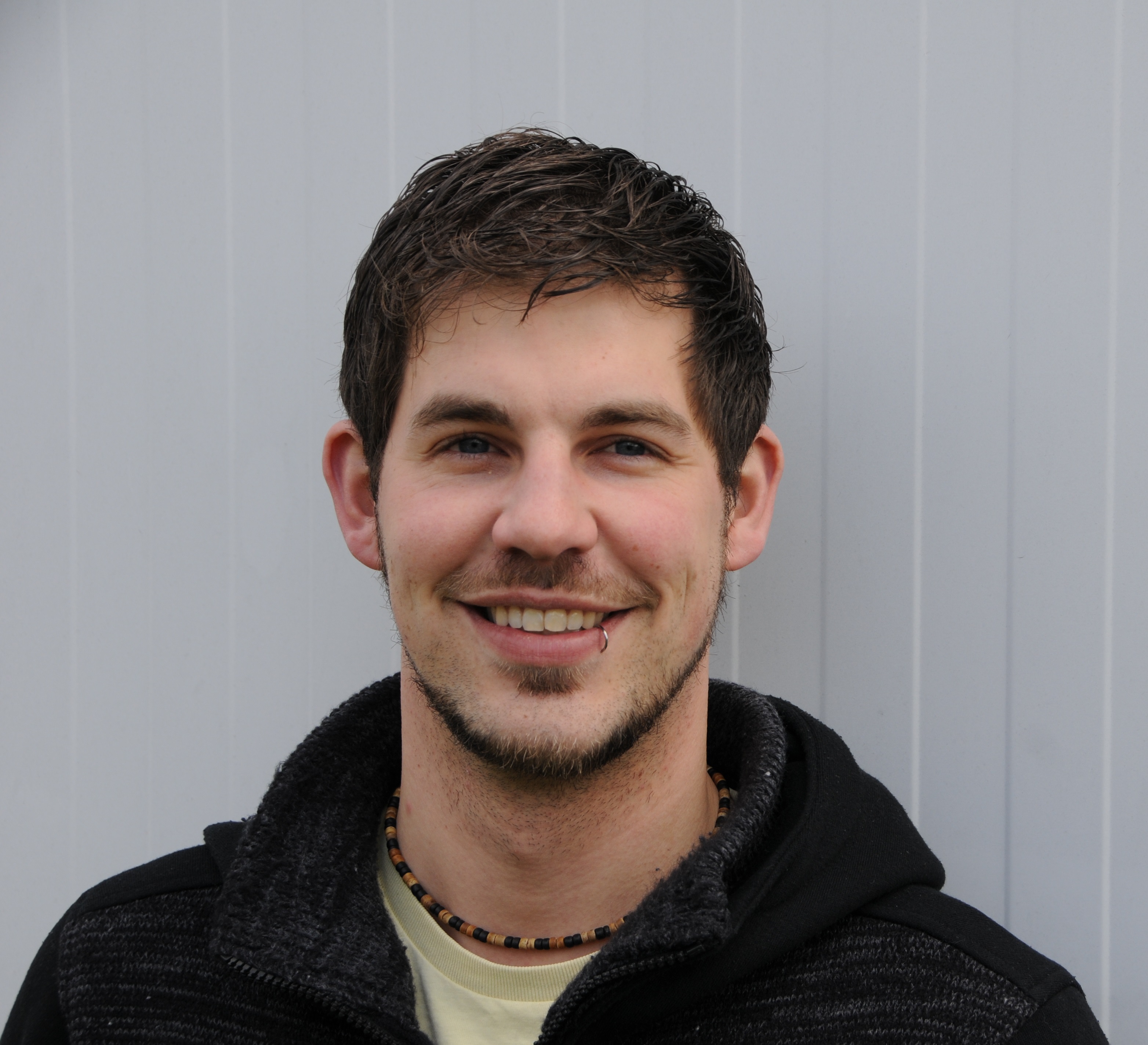 |
| Description of PhD-Topic |
|
| Contact | S_munder@uni-hohenheim.de +49 711 459-23114 |
| Other | Advanced firewood substitution by simultaneous cooking and charring application in TLUD reactor μC based sensor and control systems |
| Name | Nadja Reinhardt |
| Institution | Universität Hohenheim, Dep. of Soil Science and Pedology |
| Supervisor(s) | PD Dr. Ludger Herrmann |
| Partner (internal or external) | Prof. Siza Tumbo (SUA, Morogoro, TZ) |
| Photo | 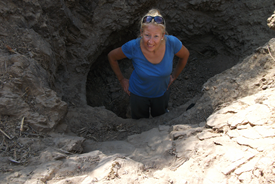 |
| Description of PhD-Topic | Gamma ray spectrometry shall be validated and improved for soil mapping. It is used to create maps of the CSS in Dodoma region. |
| Contact | Nadja.reinhardt@uni-hohenheim.de or +49 71145924523 |
| Name | Frank Joseph Wambura |
| Institution | University of Potsdam |
| Supervisor(s) | Prof. Gunnar Lischeid, Dr. Ottfried Dietrich |
| Partner (internal or external) | ZALF, Institute of Landscape Hydrology |
| Photo |  |
| Description of PhD-Topic | Analysis of Land use change and Climate variability impacts on the
hydrologic cycle in the Wami river basin This study is intended to make efficient use of now available extensive remote sensing data in assessing the relationship among the factors affecting the hydrologic cycle of the Wami River basin. In this case the time series of precipitation, temperature and remotely sensed land cover will be analysed against the remotely sensed evapotranspiration as a proxy of water balance changes in the basin. Then, the spatial-temporal patterns of remotely sensed evapotranspiration will be used to constrain a physically-based hydrological model, which in turn will be used to assess impacts of irrigation expansion and the introduction of infield rainwater harvesting agriculture (Trans-SEC upgrading strategies) under extreme climate condition scenarios on water availability in the Wami River basin. |
| Contact | fwambura@zalf.de Mob:+49-152-13562146 Office:+49-33432-82-169 Home:+49-33432-82-4915 |
| Name | Katharina Löhr |
| Institution | ZALF/HU Berlin |
| Supervisor(s) | Prof. Dr. K Müller (HU Berlin)/ Prof. Dr. L Kirchhoff (EUV) |
| Partner (internal or external) | Europa Universität Viadrina (EUV), ZALF |
| Photo |  |
| Description of PhD-Topic | The Development of a Conflict Prevention and Management (CPM) System
for an agricultural research project in Tanzania: the case of Trans-SEC:
Innovating pro-poor strategies to safeguard Food Security using Technology
and Knowledge Transfer in Tanzania The research objective of this dissertation is to academically accompany the design and implementation process of a CPM-System within Trans-SEC. By establishing project members' needs, recommendations and feedback on conflict management measures, it is the overall aim to document research outcomes and CPM effects and to develop a blue-print model for conflict management in research which can be transferred to comparative research projects. |
| Contact | katharina.loehr@zalf.de |
| Name | Luitfred D. Kissoly |
| Institution | Institute for Environmental Economics and World Trade (IUW), Leibniz Universität Hannover, Germany |
| Supervisor(s) | Prof. Dr. Ulrike Grote |
| Partner (internal or external) | |
| Photo | 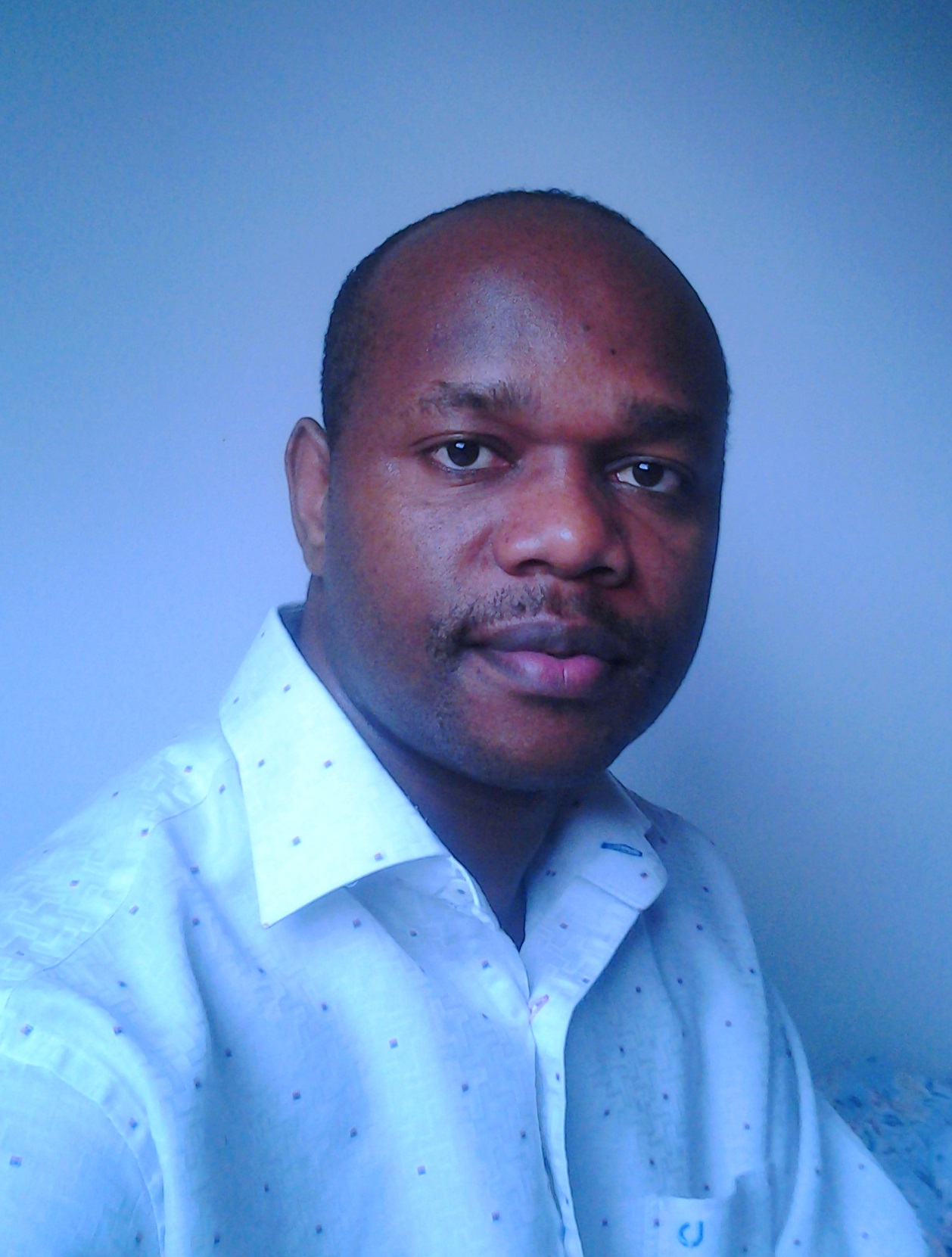 |
| Description of PhD-Topic | Applied Method: The focus of my PhD work will be on the interactions of rural household livelihoods, food security and welfare of smallholder farmers in Morogoro and Dodoma in rural Tanzania. Assessment of livelihoods' integration in small-scale agricultural value chains will be done. Aspects of rural finance, shocks, vulnerability to food insecurity and resilience will also be analyzed. Using primary household survey data, descriptive and econometric approaches will be used in the analysis. Expected result: Better understanding of relevant forms of livelihoods integration to small-scale agricultural value chains, levels and extent of shocks and vulnerability to food insecurity and resilience of rural livelihoods. |
| Contact | kissoly@iuw.uni-hannover.de |
| Name | Kathleen Brüssow |
| Institution | Institute for Environmental Economics and World Trade (IUW), Leibniz Universität Hannover, Germany |
| Supervisor(s) | Prof. Dr. Ulrike Grote, Dr. Anja Fasse |
| Partner (internal or external) | |
| Photo | 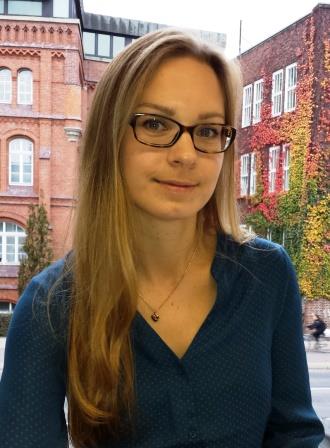 |
| Description of PhD-Topic | In Tanzania, small-scale farmers largely depend on natural resources for income and consumption. The natural resources utilized are either based on own properties (land, agroforestry, soil etc.) or public resources such as forests, community land, rivers, lakes. The focus of this PhD-thesis is to analyze the importance of natural resources such as non-timber forest products for small-scale farmers. Thereby, a closer look will be taken at the role of natural resources for food security (directly and indirectly), their regional and temporal differences in utilization, sustainability of utilization and their role as a safety net in the case of shocks occurring. The research will be based on primary household survey data. Methods applied are based on econometric and spatial models. |
| Contact | bruessow@iuw.uni-hannover.de |
| Name | Jacob Kaingo |
| Institution | SUA |
| Supervisor(s) | Prof Siza Tumbo and Prof Boniface P. Mbilinyi |
| Partner (internal or external) | PD Dr Ludger Herrmann (Universität Hohenheim, Dep. of Soil Science and Pedology) |
| Photo | 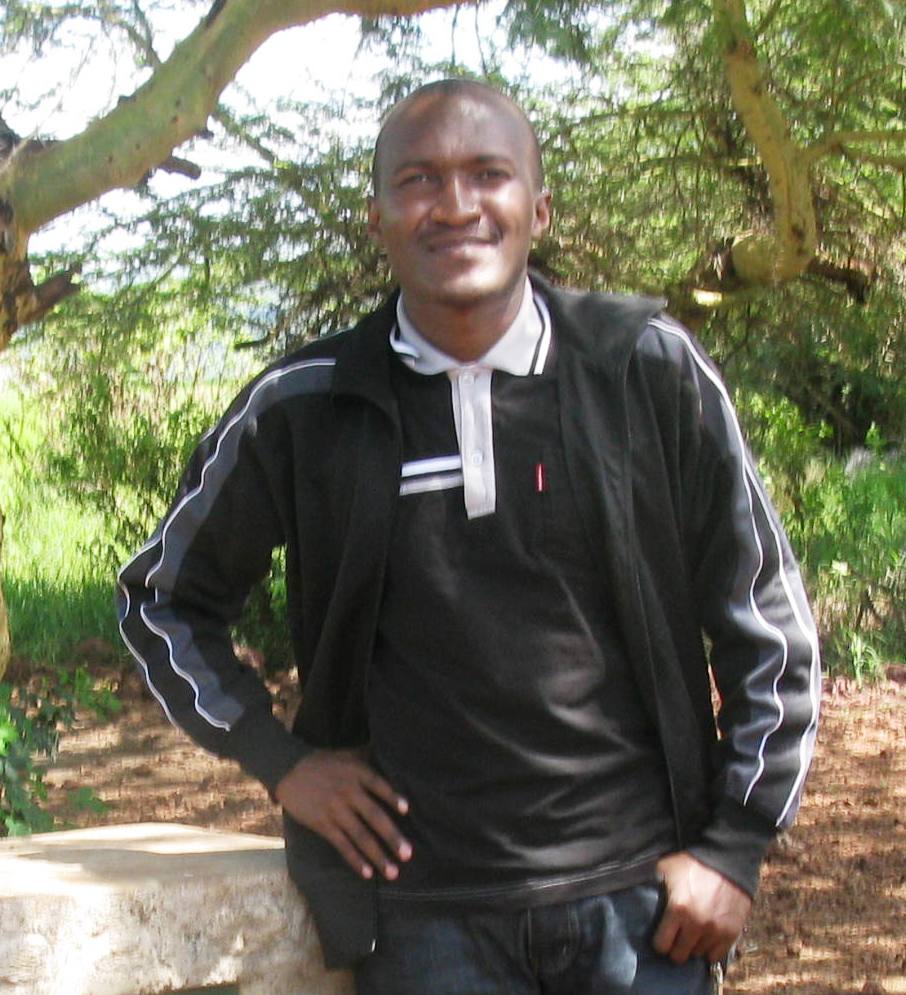 |
| Description of PhD-Topic | Applied Method: PhD research is focused on modelling of spatial variability of soil hydraulic properties within agricultural systems. The approach involves application of geostatistics, artificial intelligence and remote sensing methods. Expected result: Improved predictive capacity and utility of crop simulation models, through better scaling of soil hydraulic properties from plot, region to higher levels to provide spatially-explicit decision support in food crop production management at various scales. |
| Contact | jacobkaingo@gmail.com; +255-785-459084 |
| Other | Further, collaborate with smallholder farmers in the Trans-Sec case study sites in Kilosa to assess land productivity on the basis of indigenous soils knowledge and scientific corrrelations. Also, provide support for infrastructure development of the Trans-Sec Food security Web-GIS. |
| Name | Angela Schaffert |
| Institution | Inst. of Plant Production and Agroecology in the Tropics and Subtropics, University of Hohenheim |
| Supervisor(s) | Prof. Dr. Folkard Asch, Dr. Jörn Germer |
| Partner (internal or external) | Leon Mrosso, Elirehema Swa, Prof. Dr. Siza Tumbo, Prof. Dr. Henry Mahoo |
| Institution | ARI Makutupora, SUA |
| Description of PhD-Topic | The PhD study aims to test the suitability of sorghum, pearl
millet, sunflower, upland rice and maize in the research regions,
Dodoma and Morogoro. A focus is to analyze the effect of two management
practices, time based weeding and tied ridges on the soil water status
and the performance of the crops. Four consecutive trials are conducted at ARI Makutupora, Dodoma. In the dry season climatic scenarios are mimicked through drip irrigation and combined with drought events. In the rainy season rainfed conditions, life saving irrigation and full irrigation treatments are combined with weeding strategies and tied ridging. This study is expected to facilitate a climate sensitive selection of crops in regions where unpredicted rainfall occurs, to explore the suitability of alternative crops and to validate current crop water models. Furthermore, the outcome is expected to facilitate an efficient planning of irrigation water, its amount and timing of application, used in addition to rainfall. |
| Contact | angelaschaffert@web.de, +255 787 450 344 |



